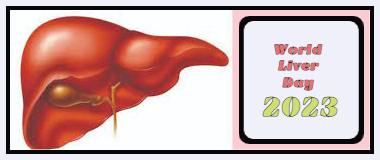Covid 19
Remdesivir Reduces Mortality in COVID Patients Hospitalized
Published
1 year agoon

According to an editorial, antivirals should have been prescribed to non-ventilated COVID patients earlier
An individual patient data meta-analysis of nine randomised controlled trials found that Remdesivir (Veklury) decreased mortality in non-ventilated individuals hospitalised with COVID-19 (RCTs).
According to research by Benjamin Speich, PhD, of University Hospital Basel in Switzerland, and colleagues, among patients who received no oxygen or low-flow oxygen, 9.1% of those who were treated with remdesivir died within 28 days of randomization as opposed to 11.2% of those who did not receive the antiviral (adjusted OR 0.80, 95% CI 0.70-0.93).
They reported their findings in a poster presentation at this year’s Conference on Retroviruses and Opportunistic Infectionsopens in a new tab or window and in Lancet Respiratory Medicineopens in a new tab or window. Of the patients on ventilation, including high-flow oxygen, 30% of remdesivir-treated patients died compared to 28.5% of those who were not treated with remdesivir (aOR 1.10, 95% CI 0.88-1.38
Although subgroup effects in RCTs must be viewed critically, the authors noted that the consistent direction of effect modification across individual trials, statistical evidence (Pinteraction=0.019 based on individual patient data), and prior evidence for a related effect modification “strongened the credibility of this subgroup effect.”
Within 28 days of randomization, 12.5% of those receiving remdesivir died compared to 14.1% of those not receiving the antiviral (aOR 0.88, 95% CI 0.78-1.00, P=0.045), and at 60 days, the mortality rates were 13.7% versus 15.2%, respectively (P=0.116).
Remdesivir is typically advised for patients hospitalised with mild to severe COVID-19 by the National Institutes of Health (NIH), the Infectious Diseases Society of America (IDSA), and WHO, according to research by Speich and colleagues. The National Institute for Health and Care Excellence (NICE), on the other hand, interprets the evidence differently, and there is still some doubt, particularly over which patient subgroup is most likely to benefit.
Moreover, patients receiving remdesivir had better clinical outcomes than those receiving placebo at both 14 and 28 days (aOR 0.87, 95% CI 0.80-0.96, P=0.0037) and were less likely to require breathing support.
Andre C. Kalil, MD, MPH, of the University of Nebraska Medical Center in Omaha, criticised the length of time it took to approve the medication for use in non-ventilated patients hospitalised with COVID in an invited commentaryopens in a new tab or window.
“Prioritizing underpowered subgroup results instead of powered overall results helped to prevent the NIH and IDSA guidelines from recommending remdesivir to patients hospitalized for COVID-19 without supplemental oxygen for nearly 2 years, and prioritizing the interim results of a high risk of bias trialopens in a new tab or window over the complete and beneficial results of a low risk of bias trialopens in a new tab or window helped to prevent the WHO guidelines from recommending remdesivir to any patients for almost 3 years,” Kalil wrote.
Read Also:- Top Over-the-Counter Testosterone Boosters for Men in 2023
“How many more lives would have been saved if remdesivir had been widely suggested and made more accessible? We must all learn from these blunders, including the scientific community, public health organisations, professional societies, journal editors, and guideline committees, in order to provide more trustworthy scientific recommendations that will directly improve patient care across the board and promote fair access to safe and life-saving antiviral therapies like remdesivir in low- and middle-income nations “Finally, he said.
In order to find RCTs of remdesivir in adult patients hospitalised with COVID, Speich and colleagues searched PubMed, Embase, the Cochrane COVID-19 trial registry, ClinicalTrials.gov, the International Clinical Trials Registry Platform, and preprint servers from January 2020 to April 11, 2022.
They had a total of 10,480 patients from nine RCTs. 58 was the median age, 63.1% were men, and 58.1% had a comorbidity of some kind. After a median of nine days of symptom duration, patients were randomly assigned.
Regarding safety, compared to 32.2% of patients who did not receive remdesivir, 27.3% of patients receiving remdesivir had at least one grade 3 or 4 adverse event or serious adverse event within 28 days.
One of the RCTs’ limitations, as stated by Speich and co-authors, was the absence of individual patient data. Additionally, they excluded patients who had SARS-CoV-2 variants like Delta, Omicron, and their sublineages from their data, despite the fact that they noted that remdesivir “maintains efficacy against emerging SARS-CoV-2 variants of concern, and has regained importance in clinical care due to increasing resistance to current monoclonal antibodies.”

You may like
-


The Nagar Nigam of Greater Jaipur is organising a major festival called the Yoga Mahotsav in 2024
-


Research Links Heart Disease Death Risk To Intermittent Fasting
-


Protect, Preserve and prosper:Go green In DAV Centenary Public School
-


the “108 ambulance” scam
-


The origins of same-sex marriage.
-


World Liver Day 2023

